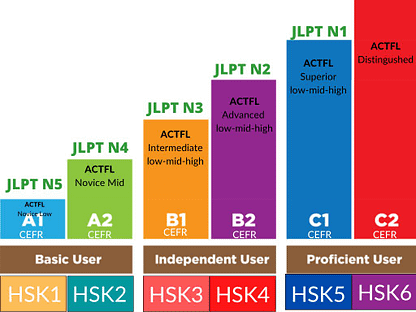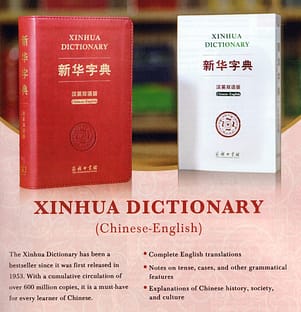Someone on Quora asked, “Is it possible to learn Chinese or Japanese without formal education? “. I have answered on Quora. However, I think it will benefit more people who are scared to learn Chinese or Japanese because they don’t have a degree.
Languages are art, not science. For art, what you need is passion and practice with a little bit of talent. Nothing to do with your university degree.
Based on our long teaching experience in China, Japan, Singapore and Australia, we saw many people from all different backgrounds learnt Chinese or Japanese very well. Some have doctorate degrees, and some didn’t go to university at all. Most are young children.
We found children can learn the language easier and faster. This is because they can absorb new things quickly without asking too many questions.
For language study, it is very important to ask more “HOW” and less “WHY“. Keep it SIMPLE.
S: Strategy
Before you start learning Chinese or Japanese, you need to ask why your want to learn that language. The answer will decide what you learn and how you learn. Why do you want to learn Chinese? Why do you want to learn Japanese? This is your passion.
I: Information
Once you decided which language you want to learn and why, the next step is to collect more information before you jump into the language study. Find an App and start learning a language is easier but does not last long.
You need to find the textbook and a tutor that suits your goal the best.
For example, we use Talking Mandarin Chinese and Talking Japanese for people who just want to learn some basic conversations to visit China and Japan. We will focus on speaking, not reading and writing. And it takes about 20 hours only.
For people who want to study Chinese and Japanese systematically and get an official certificate to put on the C.V., we teach HSK (Chinese Language Proficiency Test) and JLPT (Japanese Language Proficiency Test).
You also can choose from online private lessons or in-person classes.
M: Measurement (Milestone)
Once you chose your textbook and started learning the language, it is very important to measure your progress. Step by step is the best way to learn a language.
Both HSK and JLPT offer very good milestones for your study. For HSK, there are 9 levels now (lever 1 is the beginner’s level, and Level 9 is equal to the Master or Doctor level). JLPT has five levels. N5 is the beginner’s level and level one is equal to a native speaker.

You can find more details about all the levels here. What Is Your Language Level? CEFR, ACTFL, HSK & JLPT (languagetutor.com.au)
P: Practice
Without practice, you cannot learn a language well no matter how smart you are.
Our suggestion is to Mimic like a Lyrebird. You need to spend more time practising than studying. Listening and repeating is a great way to improve your language skills.
L: Learn
The higher the level you reach, the more important the learning will be.
When you reached an advanced level there are some questions you need a good tutor to help you. Otherwise, you will waste a lot of time and spend double your time correcting your wrong habits.
It is also important to improve self-study. A good dictionary is a great tool.
For Chinese, we recommend “Xinhua Dictionary”.
You can buy Xinhua Dictionary here:
E: Engagement
Engage with native speakers or other people to use the language you learnt in daily conversation. The more you use the language the better you improve your language skills.
In conclusion, you don’t need a formal education to learn Chinese or Japanese.
Still need help? Book a trial lesson online for half price.
